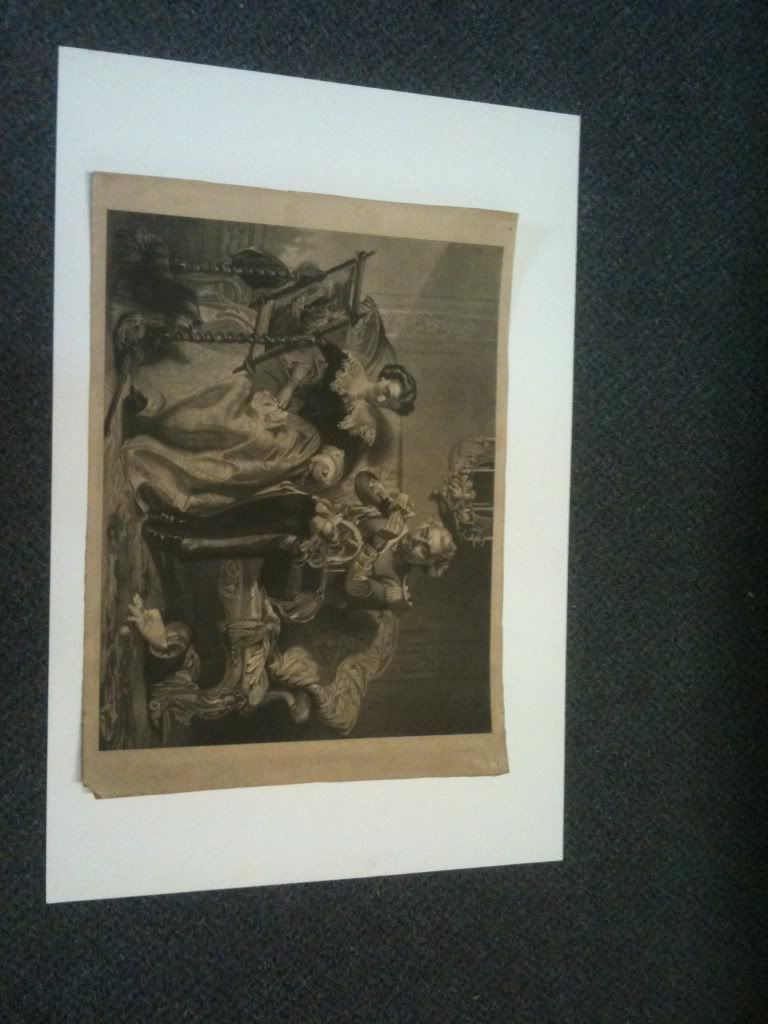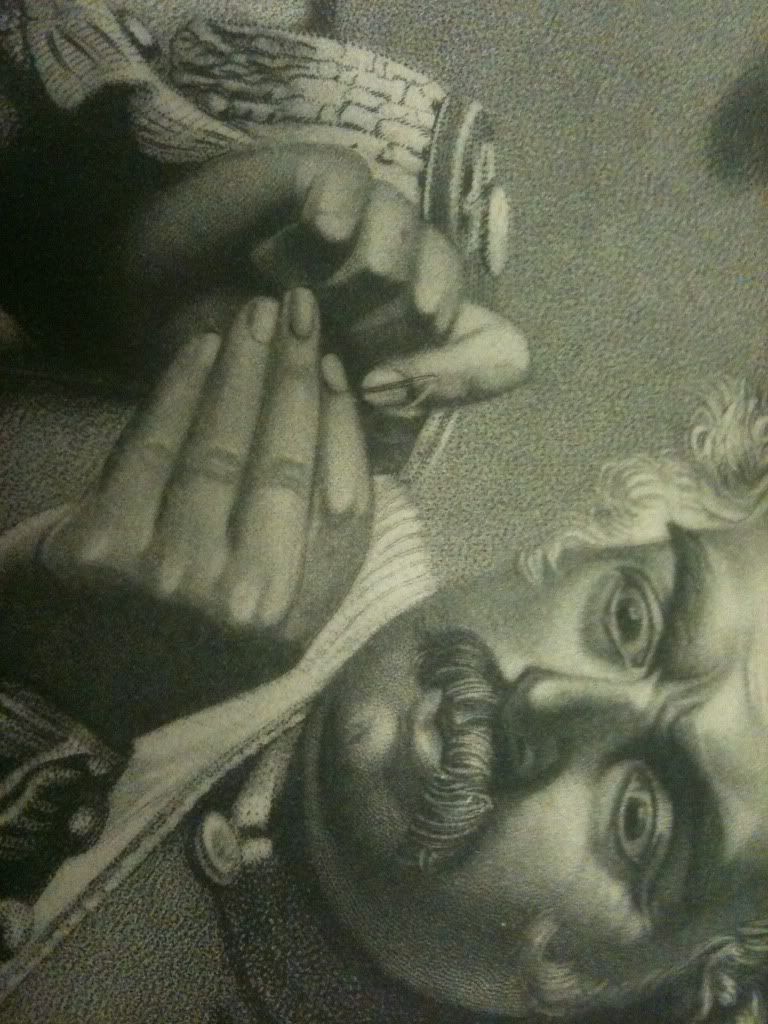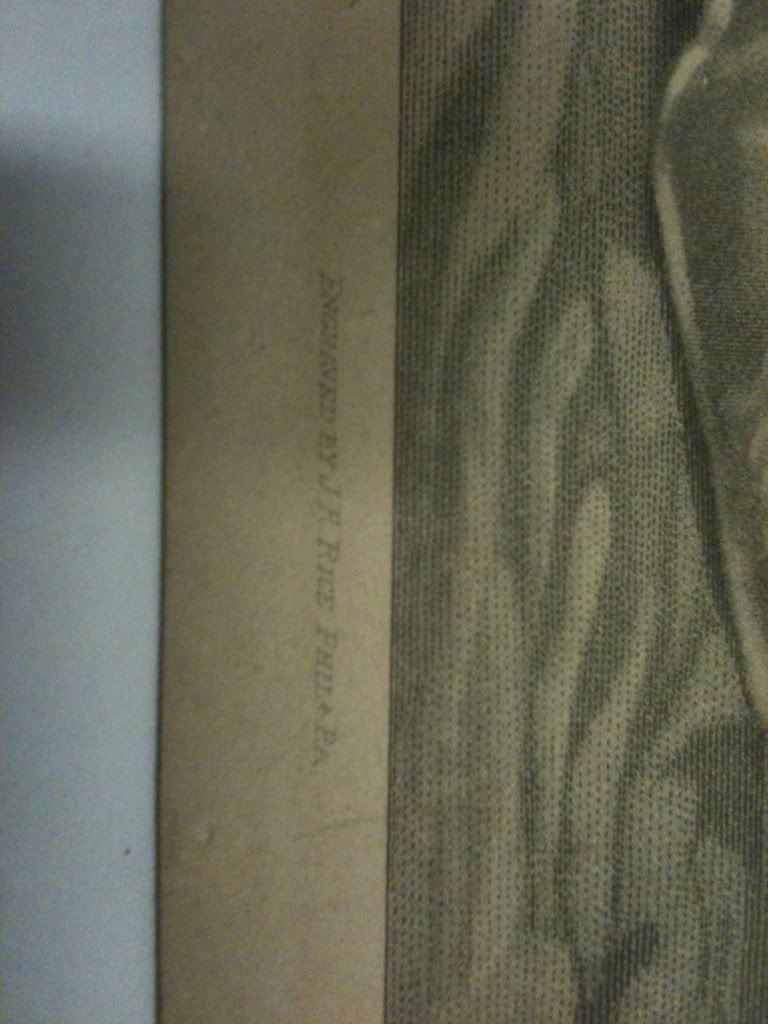So a year or three ago I picked up some cardboard boxes from a craig's list ad for free. Random assortment of new boxes ranging from 7x7x7 to 17x17x17.
As I was rearranging them in the shed today, I noticed one of them contained what appears to be an old engraving, sandwiched between two pieces of posterboard (well, one piece of posterboard, one piece of some sort of archival art paper).
Looks like the perplexed dude is trying to thread a needle whilst the bemused lady looks on.
The little information I've been able to pull up about "J.R. Rice" suggests a line engraving artist born in 1824. If this is an original it would be over a century old, which is pretty interesting in and of itself.
I'm curious how one goes about finding out if a given work of art is an original print or not. While an appraisal would be interesting, I'm more interested in learning about its age, and if possible whether it was given a name, who the subjects might be, etc.
It would be interesting to see if one could determine from the dress and furnishings what period it belongs to, for instance.
Excuse the iphone 3GS quality images. Too lazy to get out the real camera and do it right.



As I was rearranging them in the shed today, I noticed one of them contained what appears to be an old engraving, sandwiched between two pieces of posterboard (well, one piece of posterboard, one piece of some sort of archival art paper).
Looks like the perplexed dude is trying to thread a needle whilst the bemused lady looks on.
The little information I've been able to pull up about "J.R. Rice" suggests a line engraving artist born in 1824. If this is an original it would be over a century old, which is pretty interesting in and of itself.
I'm curious how one goes about finding out if a given work of art is an original print or not. While an appraisal would be interesting, I'm more interested in learning about its age, and if possible whether it was given a name, who the subjects might be, etc.
It would be interesting to see if one could determine from the dress and furnishings what period it belongs to, for instance.
Excuse the iphone 3GS quality images. Too lazy to get out the real camera and do it right.



